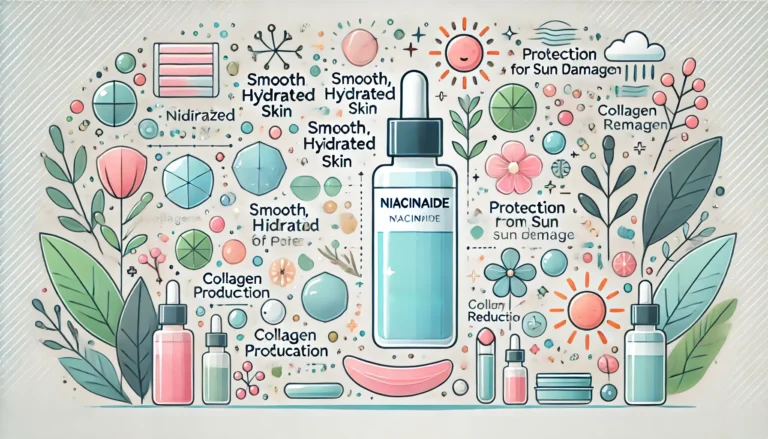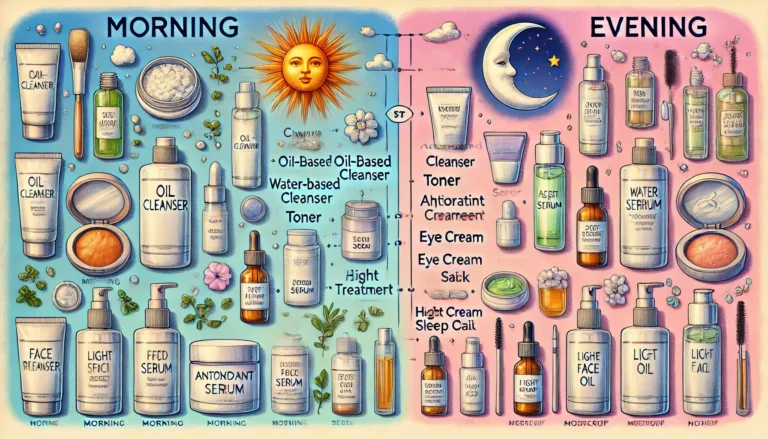Skin Microbiome’s Role in Acne: Balancing for Clear Skin
“`html
For many individuals, acne is more than just a teenage rite of passage; it’s a persistent skin condition that affects self-esteem and quality of life. The frustration of trying countless skincare products and treatments without seeing significant improvement is all too familiar for those struggling with acne. Despite the plethora of options on the market, understanding the root cause of acne remains a complex puzzle.
The goal of this article is to shed light on a lesser-known yet crucial factor in skin health: the skin microbiome. By exploring how the delicate balance of microorganisms living on our skin impacts acne, we can better understand the potential avenues for effective treatment and prevention. This knowledge could empower individuals to make informed choices about their skincare routines and seek solutions that address the issue at its source.
In summary, the skin microbiome plays a vital role in maintaining skin health and preventing conditions like acne. Our skin is home to a diverse community of bacteria, fungi, and viruses, which coexist in a delicate balance. Disruptions to this microbiome can lead to skin issues, including acne. By understanding the relationship between our skin microbiome and acne, we can explore more targeted and effective treatments that focus on restoring balance to our skin’s ecosystem.
What is the Skin Microbiome?
The skin microbiome refers to the trillions of microorganisms, including bacteria, fungi, and viruses, that inhabit the surface of our skin. This complex ecosystem plays a crucial role in protecting the skin from harmful pathogens, modulating immune responses, and maintaining overall skin health. The diversity and composition of the skin microbiome are influenced by factors such as genetics, environment, diet, and personal hygiene practices.
Recent research has highlighted the importance of the skin microbiome in various skin conditions, including acne. When the balance of the skin microbiome is disturbed, it can lead to dysbiosis, where harmful bacteria outnumber beneficial ones. This imbalance can contribute to inflammation, infection, and ultimately, the development of acne. Understanding the skin microbiome is therefore essential in addressing acne at its root cause.
The Connection Between Skin Microbiome and Acne
Acne is primarily caused by the overproduction of sebum, clogged pores, and the proliferation of acne-causing bacteria such as Cutibacterium acnes (formerly known as Propionibacterium acnes). While hormonal changes and genetics play significant roles in acne development, the skin microbiome also has a substantial impact. An imbalance in the microbiome can exacerbate acne by promoting inflammation and bacterial overgrowth.
Research has shown that individuals with acne often have a less diverse skin microbiome compared to those with clear skin. This lack of diversity may weaken the skin’s defense mechanisms, allowing acne-causing bacteria to thrive. Restoring microbial balance can potentially reduce inflammation and prevent acne flare-ups. This insight has led to a growing interest in microbiome-targeted therapies as a novel approach to acne treatment.
Microbiome-Targeted Treatments for Acne
As we gain a better understanding of the skin microbiome’s role in acne, new treatment strategies are emerging. Microbiome-targeted treatments aim to restore the natural balance of the skin’s microbial communities. These treatments include probiotics, prebiotics, and postbiotics, which work to support beneficial bacteria and inhibit the growth of harmful ones.
Probiotics, for example, introduce beneficial bacteria to the skin, helping to outcompete acne-causing bacteria and reduce inflammation. Prebiotics, on the other hand, provide the nutrients necessary for beneficial microbes to thrive. Postbiotics, the byproducts of probiotic bacteria, can also have anti-inflammatory and antimicrobial effects. Incorporating these elements into skincare routines offers a promising avenue for those seeking alternative acne treatments.
Practical Steps for Maintaining a Healthy Skin Microbiome
Maintaining a healthy skin microbiome is essential for preventing and managing acne. Here are some practical steps you can take to support your skin’s microbial community:
- Gentle Cleansing: Use mild, sulfate-free cleansers to avoid stripping the skin of its natural oils and beneficial bacteria. Over-cleansing can disrupt the microbiome and lead to dryness and irritation.
- Avoid Harsh Ingredients: Limit the use of products containing alcohol, benzoyl peroxide, and other harsh chemicals that can disrupt the skin’s microbial balance.
- Moisturize Regularly: Keeping your skin hydrated helps maintain its barrier function, supporting a healthy microbiome. Opt for non-comedogenic moisturizers that won’t clog pores.
- Consider Probiotic Skincare: Look for products containing live probiotics or postbiotic extracts known to support skin health and reduce inflammation.
- Mind Your Diet: A balanced diet rich in fiber, fruits, and vegetables can positively influence your skin’s microbiome. Consider foods that naturally contain probiotics, like yogurt and fermented products.
Conclusion: The Future of Acne Treatment
The exploration of the skin microbiome is unveiling new possibilities for treating acne more effectively. As research continues to evolve, we can expect to see more microbiome-friendly products and therapies becoming available. By focusing on restoring balance to our skin’s ecosystem, we can address acne not just symptomatically but at its core, potentially leading to longer-lasting results.
Understanding and supporting your skin microbiome is an empowering step towards healthier skin. Embracing this knowledge can not only help in managing acne but also enhance overall skin resilience. As we move towards a more holistic approach to skincare, the potential for personalized and microbiome-centered treatments offers hope for those seeking relief from the challenges of acne.
“`


